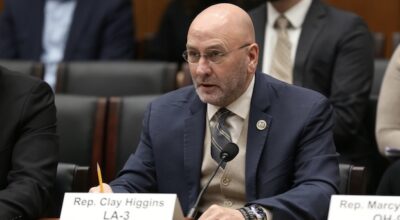Ongoing legal battle threatens rice research
Published 7:26 am Sunday, March 31, 2013
An ongoing legal battle between some rice growers in Jefferson Davis Parish concerning rice research and promotion check-off programs, could be doing more harm than good for rice research and promotion.
“The rice industry is a $2 billion industry in Louisiana and this is a threat to everyone in the industry,” Louisiana Rice Growers Association President John Owen of Rayville said.
The rice research and promotion check-off programs and boards have served Louisiana’s rice industry well for over 40 years and have been functioning as they were designed to benefit every rice producer, Owen said.
“Forty years ago rice growers in this state saw the need for research and promotion,” he said. “They drafted legislation that created governing boards for research and promotion made up of growers chosen democratically by their peers.”
Having each farmer say where their money is spent results in “chaos” and eliminates the function of the promotion board, which represents grower organizations in the state, Owen said.
The boards are audited by the state, bound by ethics laws and are completely open and transparent, he said.
“Their existence is dependent on a referendum vote held every five years,” he said. “The referendum has always been approved by a significant majority and the program has served the rice industry extremely well.”
A 1992 referendum vote included a provision that made the check off program “equal assessment.” The referendum was passed by the state’s rice growers.
Prior to the referendum’s passage, rice producers had an option to ask for these funds to be returned to them.
“Equal assessment means that everyone contributes to research and promotion , based on the amount of hundred weights of rice grown,” Owen said. “With equal assessment, there are no free rides. Everyone who benefits from the research and promotion programs pay his or her fair share and every grower in Louisiana is a beneficiary.”
That program is now being challenged after a state district court judge declared it unconstitutional.
The case is now headed to the state Supreme Court.
“It’s frustrating that after passing the referendums by a margin of 85 percent for research and 75 percent for promotion, after defending an assault on the check-off referendum in the legislature, that we are now facing a lawsuit brought by a small group of producers who refuse to respect the vote and recognize the will of the vast majority of producers within the state,” Owen said.
Those with concerns about the way the money is spent could work to get nominated by their peers and confirmation from the governor to serve on one of the research and promotion boards, he said.
Owen contends that the research and promotion boards have been effective and have made wise choices with how the monies are used.
Rice farmers pay three cents for every 100 pounds of their crop for promotion, with a nickel per hundredweight paying for research.
Promotional funds are used to gain market access for and promote greater consumption of all types and forms of U.S. grown rice in the domestic and international markets.
USA Rice Federation utilizes professionally directed promotion activities that best leverage the the funds available .
Research funds are used to find new varieties, study disease and insect control and fertility. Much of the research is done at the LSU Rice Research station in Crowley, which Owen credits as “one of the finest in the U.S., if not the world.”
“Our check-off dollars are the lifeblood of that institution and without it we would be dead in the water,” he said
Research is also conducted on how to make rice farming more profitable and sustainable, he said.
Advances in rice agronomy funded by check off dollars have increased average rice yields from 38.2 CWT in 1972 to nearly 67 CWT in 2010 – a 75 percent increase, he said.
Owen said U.S. rice export values have increased from $665 million in 1972 to $2.36 billion in 2010 – a 255 percent increase due to promotions and knocking down trade barriers to U.S.rice. Domestic consumption has also increased from 7 pounds per capita in 1971 to 26 pounds per capita in 2010 – a 271 percent increase
Owen does not know how long the appeal will take, but hopes it will be settled by the end of the year and that both sides can work together.
“It’s a lot of wasted energy fighting each other when we could be working together to promote the rice industry,” he said. “It’s not in any one’s best interest. We should be figuring out how to increase sales and grow more rice.”
The decision affects nearly 1,050 rice growers in Louisiana, as well as associates including the merchants, rice driers and mills, Owen said.
(American Press Archives)





